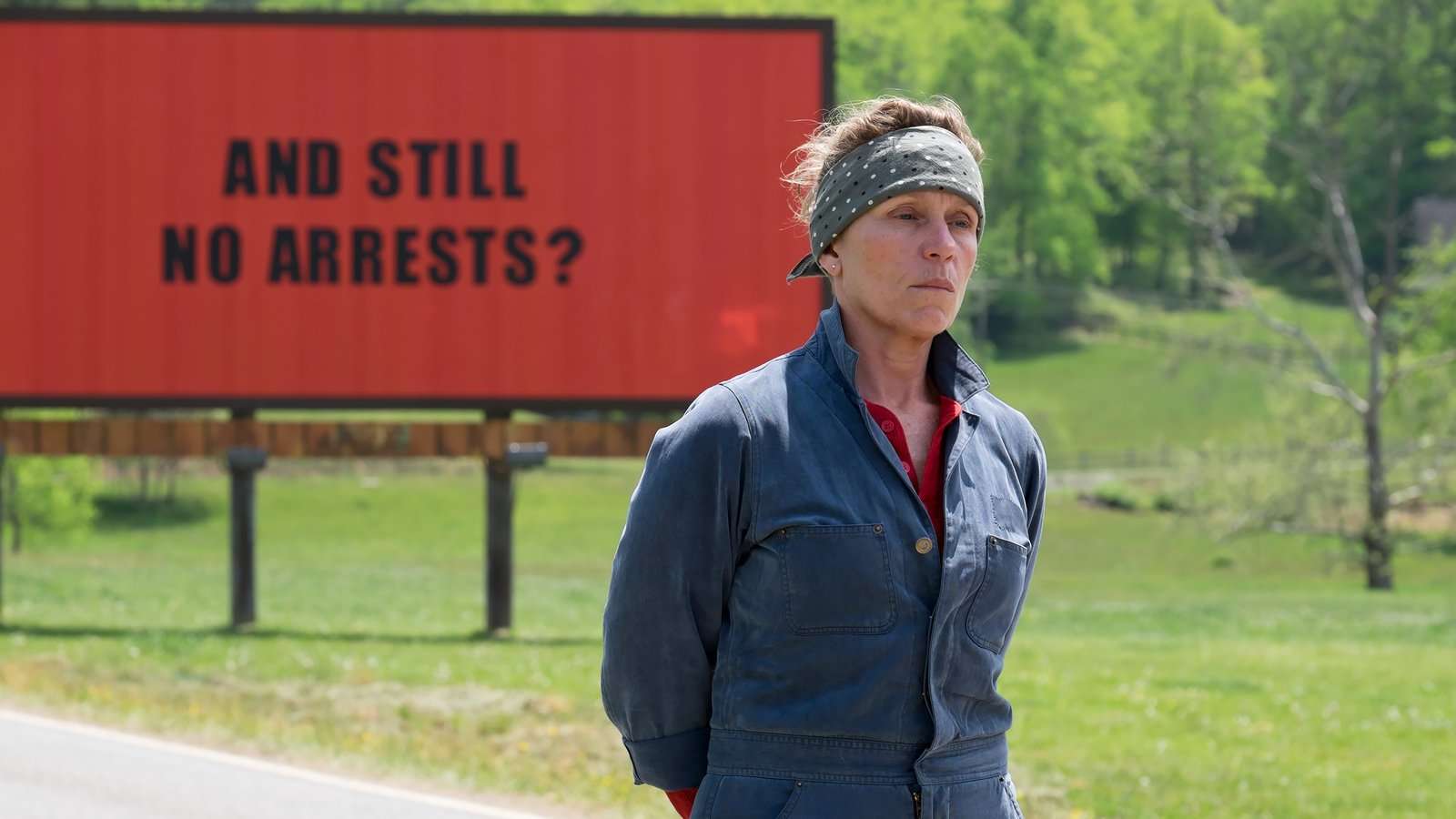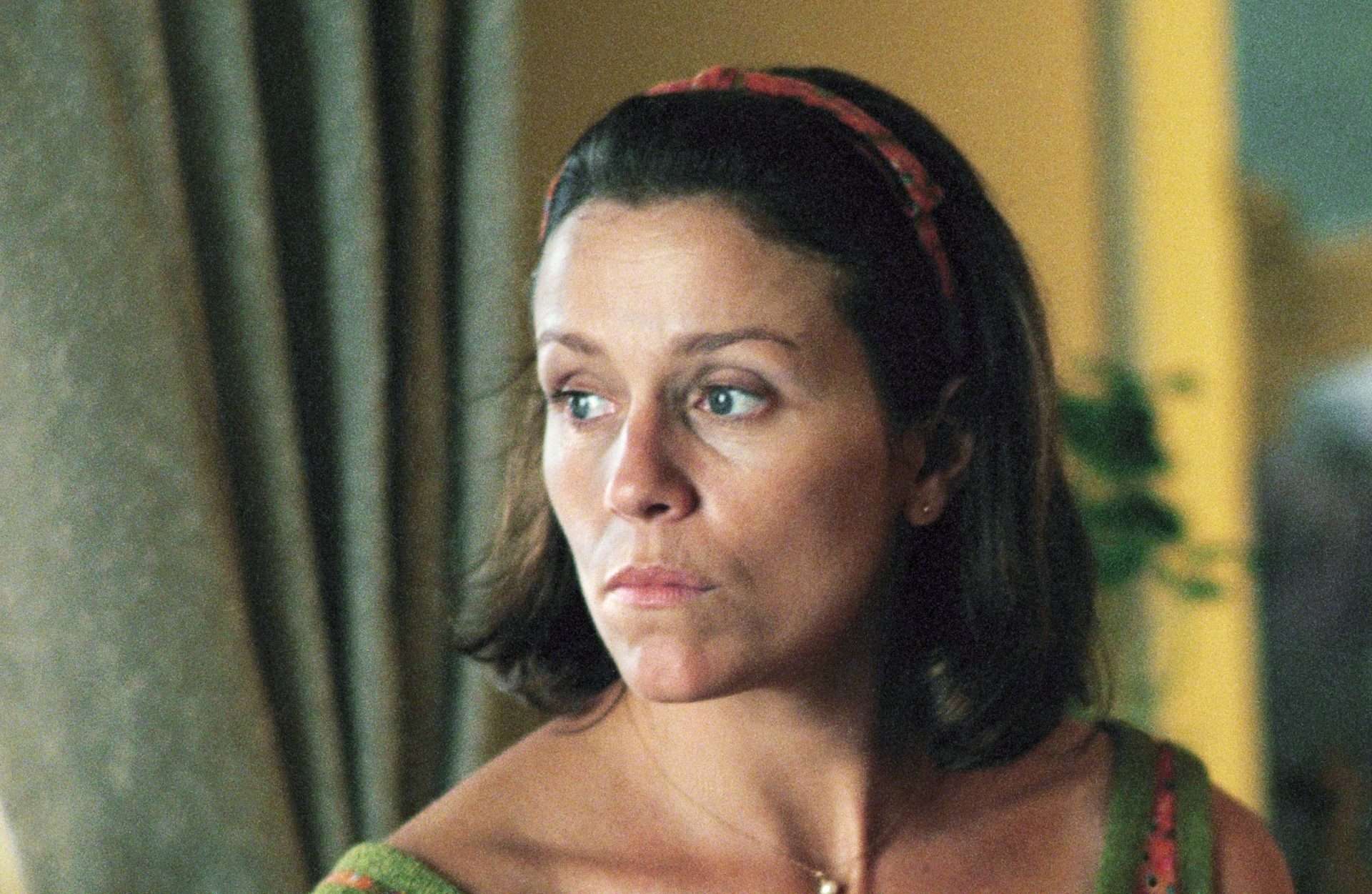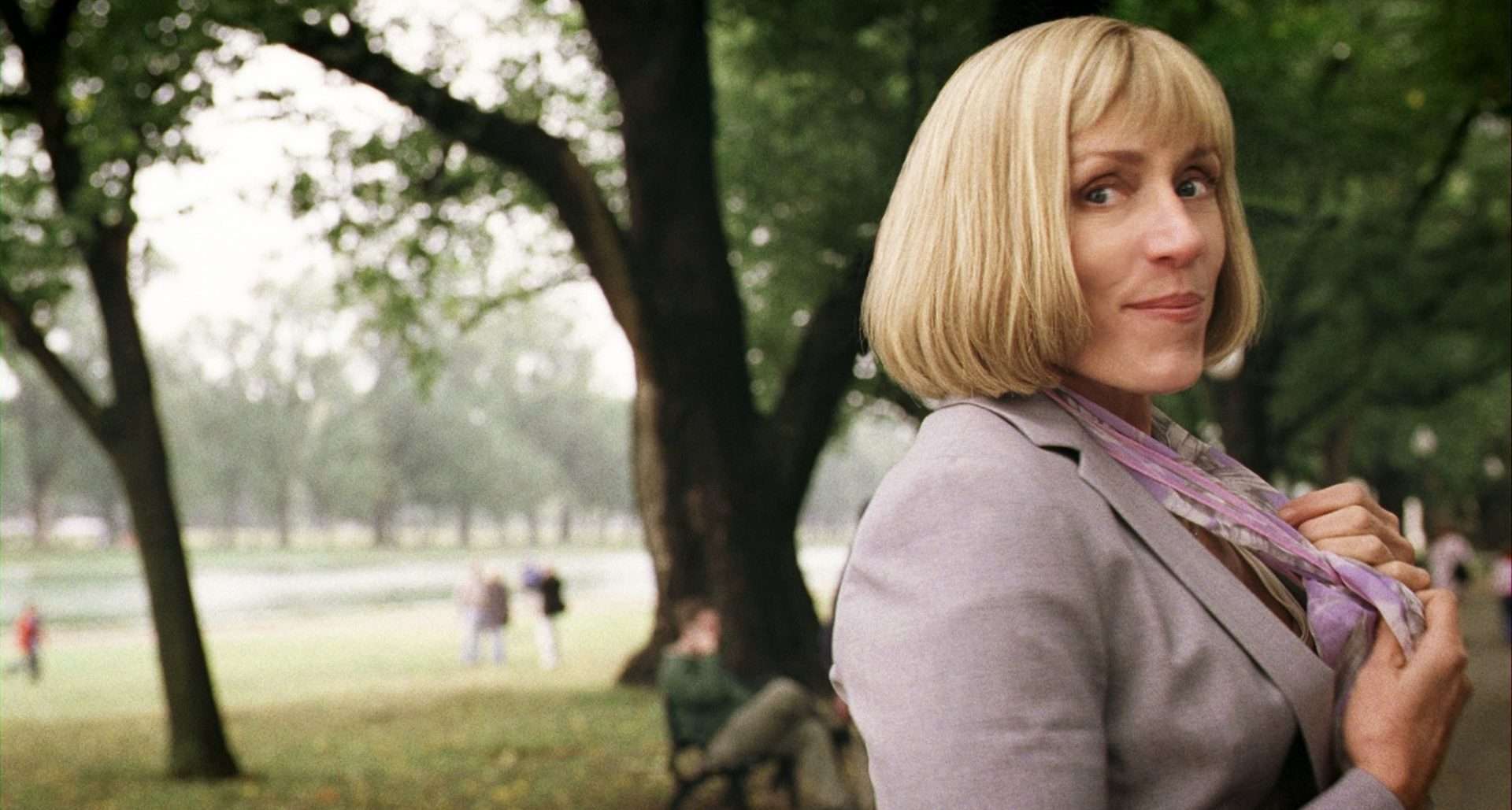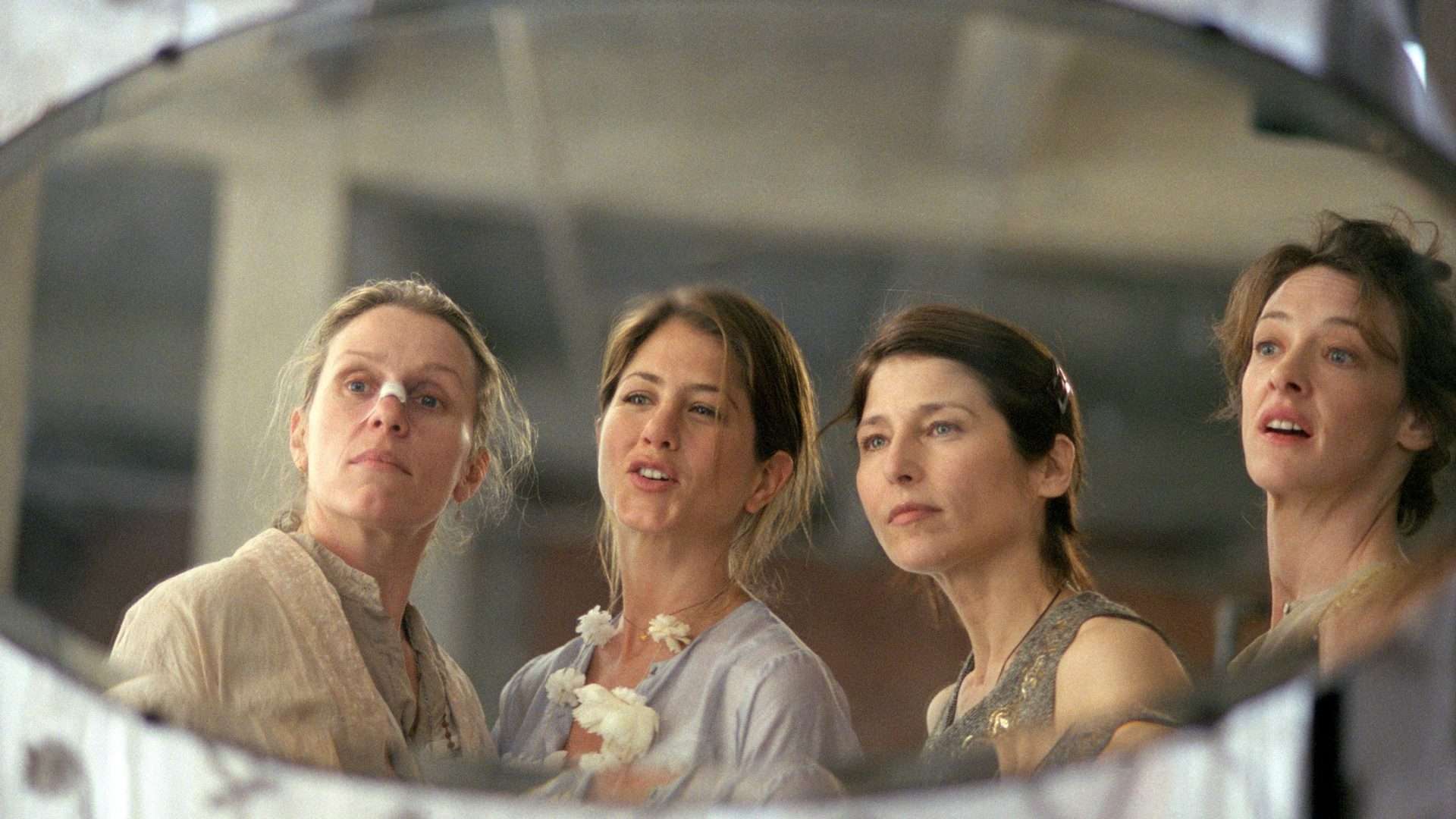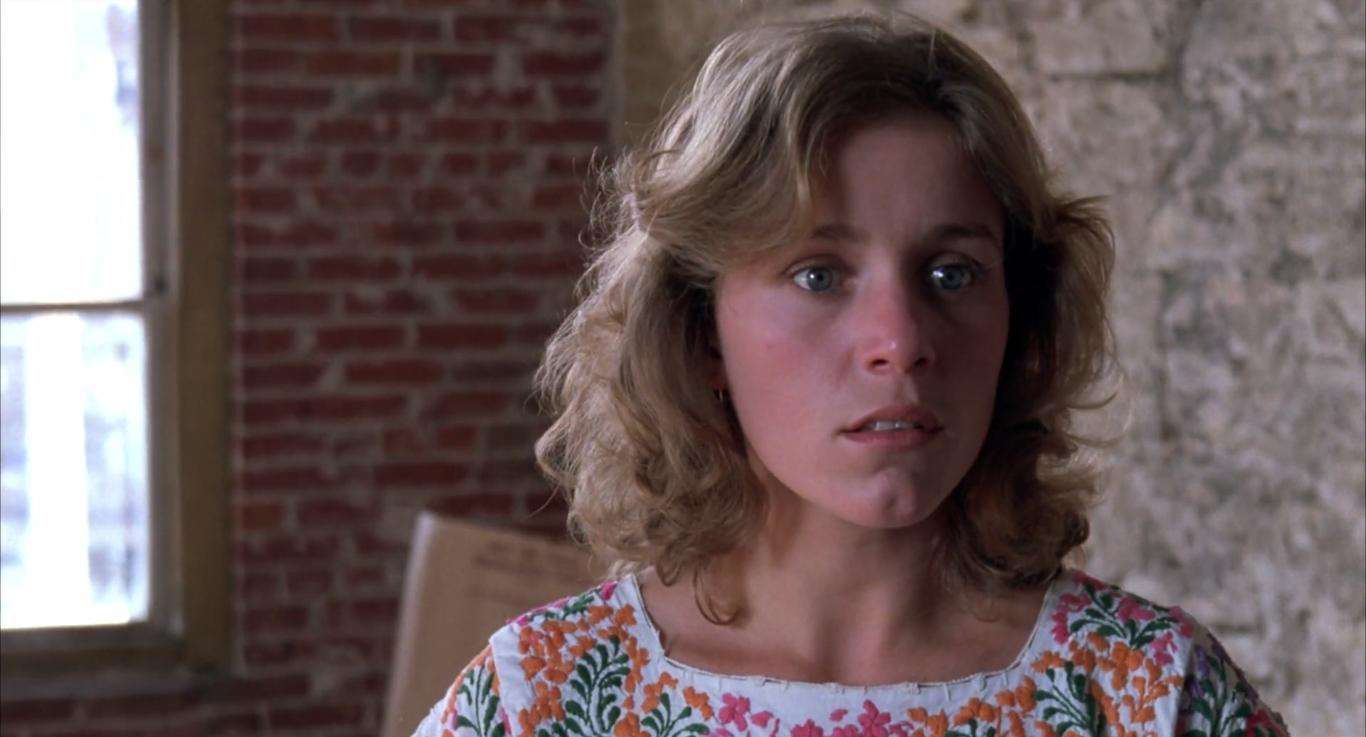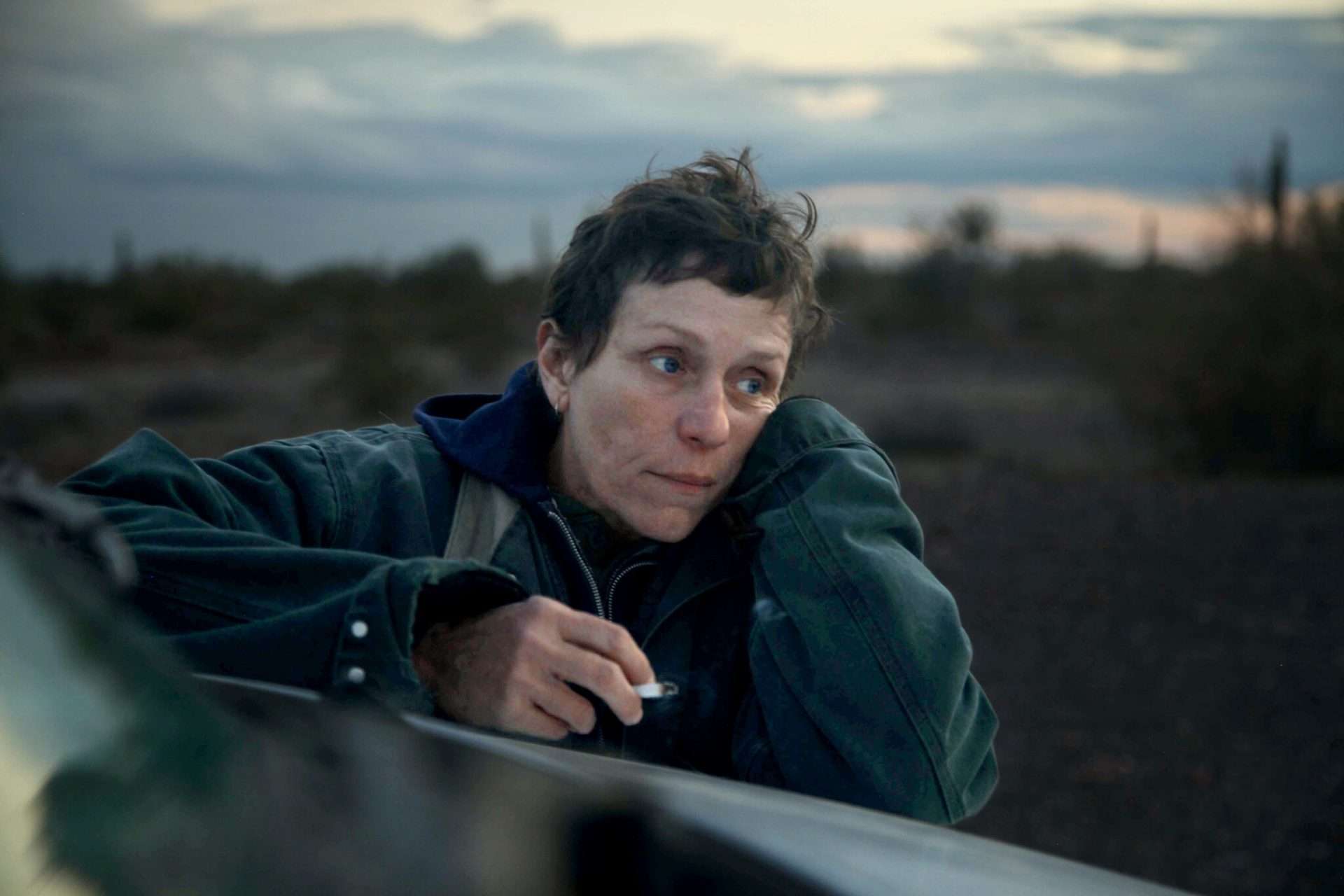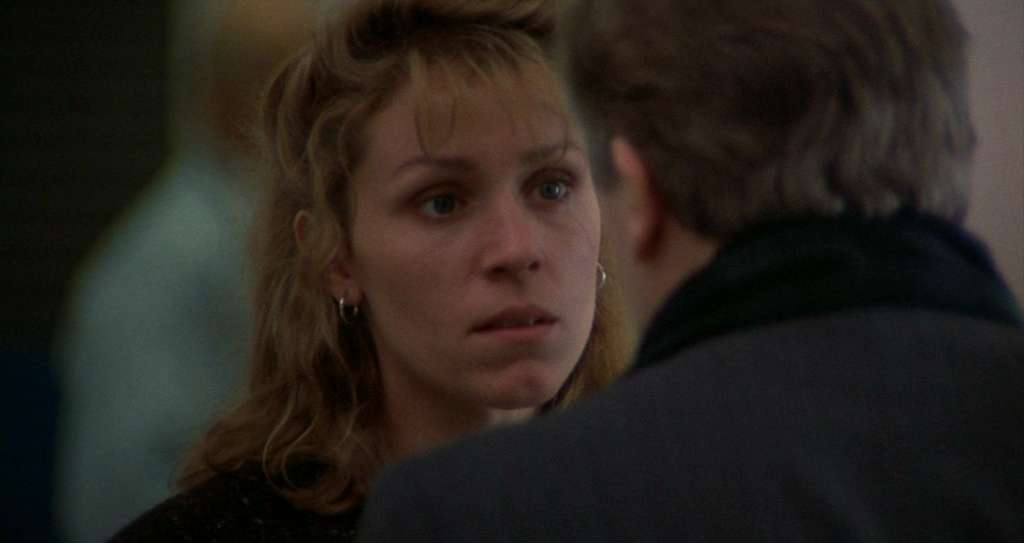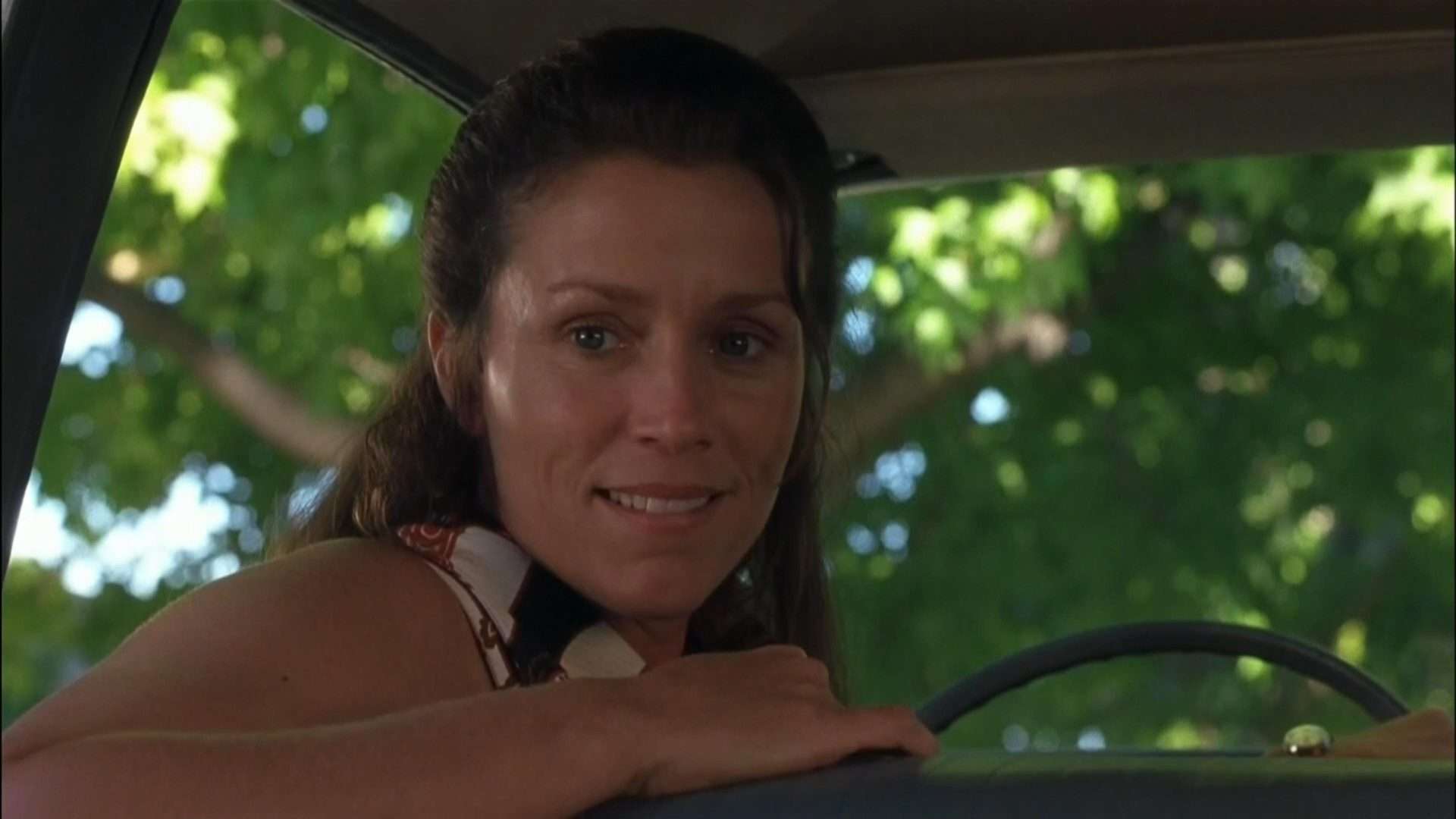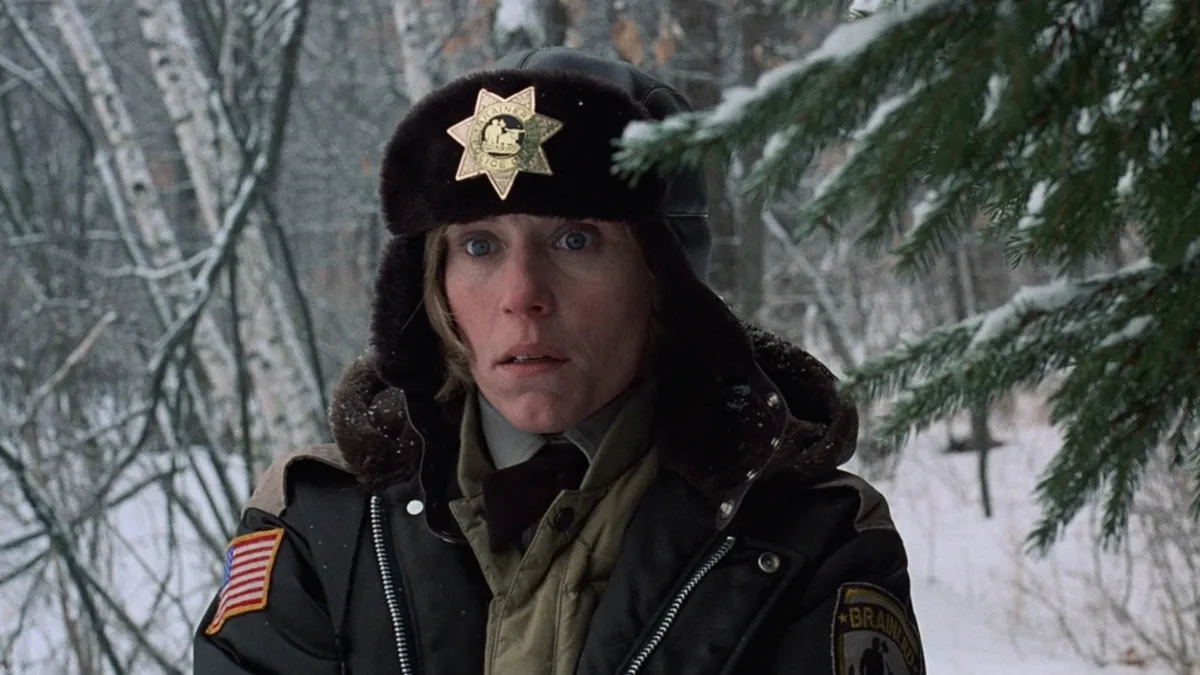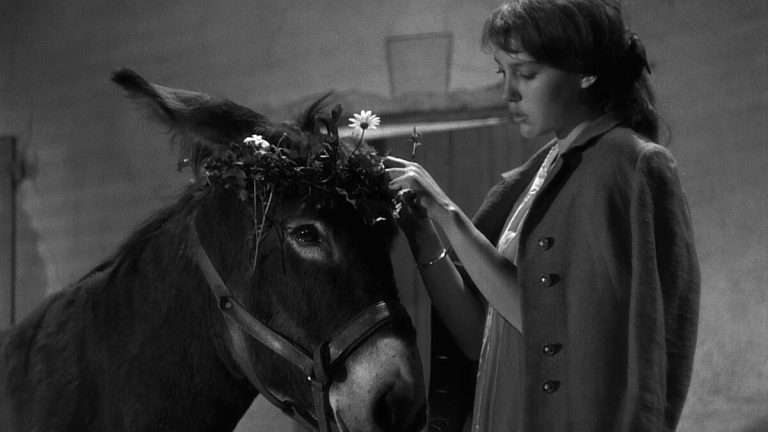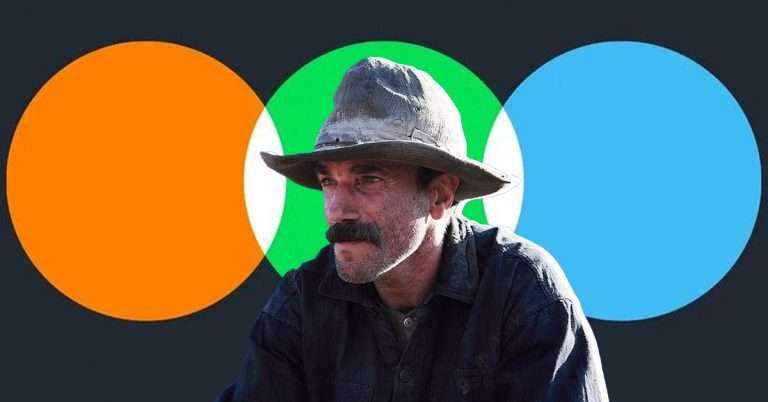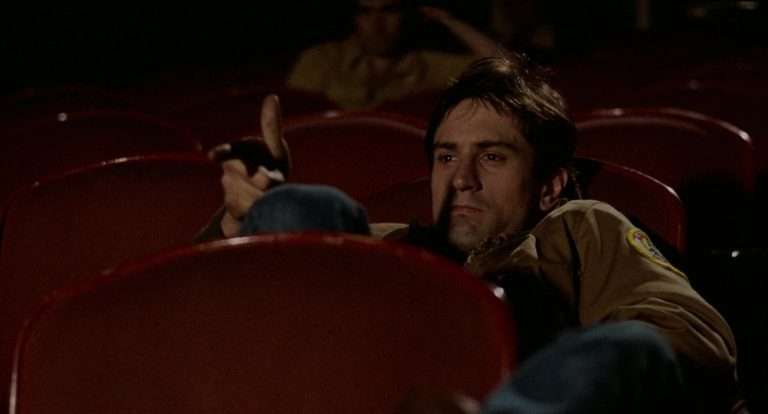Frances McDormand is one of the most celebrated actors of the modern era, but to truly understand her appeal, you’ll have to forego the endless list of awards. This is easier said than done, considering her roll call: three BAFTAs, two Golden Globes, four Oscars, two Emmys, and a Tony. McDormand is such a compelling presence on and off screen because of her refusal to play the industry games. She has continually dedicated her life’s work to independent films, as well as, of course, the oeuvre of her husband, the legendary Joel Coen.
More recently, her work with a spate of female directors like Chloe Zhao has caught the eye, and it’s a shame that the brilliant TV show “Olive Kitteridge” is ineligible for this list. McDormand effortlessly switches between a droll comic register and an intense, embittered dramatic persona within these films. She continually plays strong-willed women in male-dominated environments, but never with the cornball earnestness some of her peers can succumb to. Every McDormand character feels authentic and three-dimensional. Now, she is reaching the autumn of her career roles, which benefits from the intertextual relationship the audience has developed over decades with one of Tinseltown’s most unconventionally brilliant performers.
Whittling down McDormand’s greatest roles to just 10 was a difficult task, and I wanted to avoid making this a de facto Coen Brothers ranking. So, with some classics, some personal favorites, and overlooked gems, here are her best performances ranked.
10. Three Billboards Outside Ebbing, Missouri (2017)
Some may be surprised to see “Three Billboards” so low on this list. After all, it reignited McDormand’s career with a second Oscar win, but the truth is that time has not been so kind to Martin McDonagh’s dryly comic tome on American race relations. In hindsight, some of the characterizations look simplistic and overwrought. However, you certainly couldn’t say that about McDormand’s role as Mildred Hayes, a bereaved mother who erects the titular three billboards to get justice for her daughter. Mildred is suitably spunky and no-nonsense but also clearly vulnerable in her grief and confused by the confluence of social and political factors that are preventing justice from being carried out.
The movie shines brightest when McDormand can carry scenes and allows Mildred’s bereavement to be the dramatic focus. Recalling her classic work in “Fargo,” the droll comedy, intense drama, and moral seriousness of the film are naturally suited to her skillset, perhaps because McDonagh carries a pretty overt Coen brothers influence on his sleeve. There’s a sense that this brassy, determined woman is within McDormand’s comfort zone, but she plays that part better than anyone else.
9. Short Cuts (1993)
McDormand doesn’t remain on the screen for more than 20 minutes in “Short Cuts,” but she nevertheless makes an impact in Robert Altman’s legendary smorgasbord of life in Los Angeles. She plays a woman named Betty, who is caught in an affair with a married man, and the abrasive, unlikeable Gene, played by Tim Robbins. The two don’t get on – how could anyone get on with Gene? – but have a carnal attraction that forgoes good taste, leading to immense difficulty in their personal lives. The various tableaux that comprise this three-hour epic, based on the work of Raymond Carver, Betty, and Gene, are among the most insipid examples of the modern California milieu but an essential component and contrast with the more traditionally sympathetic characters.
The reason why Altman works so wonderfully with ensemble casts is his ability to coax various skills out of a range of performers and his mastery at directing individual scenes and smaller moments, which can make up the fuller picture. It takes almost an hour to be formally introduced to every character. Still, when no character is given a special emphasis, the tone and atmosphere of the environment come into focus, and slowly but surely, every character has a special emphasis. Whether it is Robert Downey Jr. and Chris Penn’s tumultuous friendship, Lily Tomlin and Tom Waits’s tempestuous romance, or Jack Lemmon’s attempt to reconnect with his son, you can take the pick of your favorite storyline but don’t forget about McDormand’s crucial contribution.
8. Burn After Reading (2008)
The Coen brothers take on the inanity of the post-9/11 surveillance state in this comic farce. So often associated with intelligence and moral fortitude in her roles, McDormand’s character in “Burn After Reading,” the feckless gym employee Linda Litzke, is a refreshing change of pace. Litzke is motivated by nothing more than the vain attempt to reconstruct her face and body with botox, ignores the sympathetic would-be love interest Ted (Richard Jenkins), and is foolish enough to try and extort the American government by going to the Russian embassy, only to get in trouble with both. Litzke is the perfect counterpoint to McDormand’s famous line in “Fargo” that ‘there’s more to life than a little money.’
If the film shows McDormand’s impressive range, then it also reaffirms the Coens as masters of black comedy. There’s the occasional explosion of violence, the mix of absurd caricatures (Brad Pitt and Tilda Swinton’s roles in this instance) with genuinely sympathetic characters who have their wishes thwarted in increasingly absurd ways. In a cynical ending, it’s revealed that the various schemes at play in “Burn After Reading” benefitted nobody but the federal government, which doesn’t seem to care very much. It’s a banal existence full of futility, and perhaps the Coens are suggesting that pursuing Litzke’s route of material gain is a one-way route to unhappiness.
7. Friends with Money (2006)
Nicole Holofcener has been around for decades, bubbling just under the mainstream with her gentle and surprisingly moving brand of romantic comedy dramas. “Friends with Money” indeed boasts an A-list cast, fronted by Jennifer Aniston in her best movie role to date, as well as Frances McDormand as Jane, one of Aniston’s friends whose marriage is beginning to fracture. The movie’s central thesis is that comparing your lives with others is a waste of time and can destroy worthwhile friendships. The theme only works because of the genuine chemistry between the grab-bag of actresses in the ensemble – Aniston and McDormand are joined by the equally excellent Catherine Keener and Joan Cusack.
Holofcener’s scripts never force drama out of situations to the point where certain scenes can appear borderline uneventful. However, there’s a subtle art to effectively establishing this middle-class white milieu. In its best moments, “Friends with Money” recalls the finest work of Woody Allen in the 1980s, thoughtfully exploring how a character with all the components of an affluent existence winds up disillusioned by the more profound questions in life. Funny and tragic in equal measure, “Friends with Money” is an accessible and underrated picture that features McDormand in a lighter mode than you may be accustomed to.
6. Blood Simple (1984)
The Texas sun soars and swelters in “Blood Simple,” the beautifully shot and brilliantly constructed debut of the Coen brothers. It was released in 1984, the year that Joel Coen and Frances McDormand married, and their creative partnership was already proving to be fruitful. The Coens penned a screenplay whose sharp wit and provincial charm, contrasted with violent darkness, will be familiar to any fan of “Fargo” or “No Country for Old Men.” McDormand proves the perfect conduit for the dialogue as Abby, a woman who a private investigator (M. Emmet Walsh) is hired to murder.
The film wears its film noir and Hitchcock influences proudly, melding their sensibilities with Coen’s homespun black humor. Emmet Walsh is the hokey everyman but with a broken moral code influenced by the dog-eat-dog state of his surroundings. McDormand spends much of the picture frightened in the crosshairs of violent men, but in the suspenseful and masterfully crafted climactic scene, Abby is fiercely determined to defend herself. In terms of pure formal chops, debut features don’t get much more accomplished than “Blood Simple,” an early indication that the Coen brothers were two of the brightest screenwriters and directors in American cinema. The atmospheric setting, the memorable characters, and the quirky performances: all the ingredients of their classic works are there but more subdued and terse, befitting a suspenseful crime drama.
Also Related to Frances McDormand: 25 Best Oscar-Winning Performances (Female)
5. The Tragedy of Macbeth (2021)
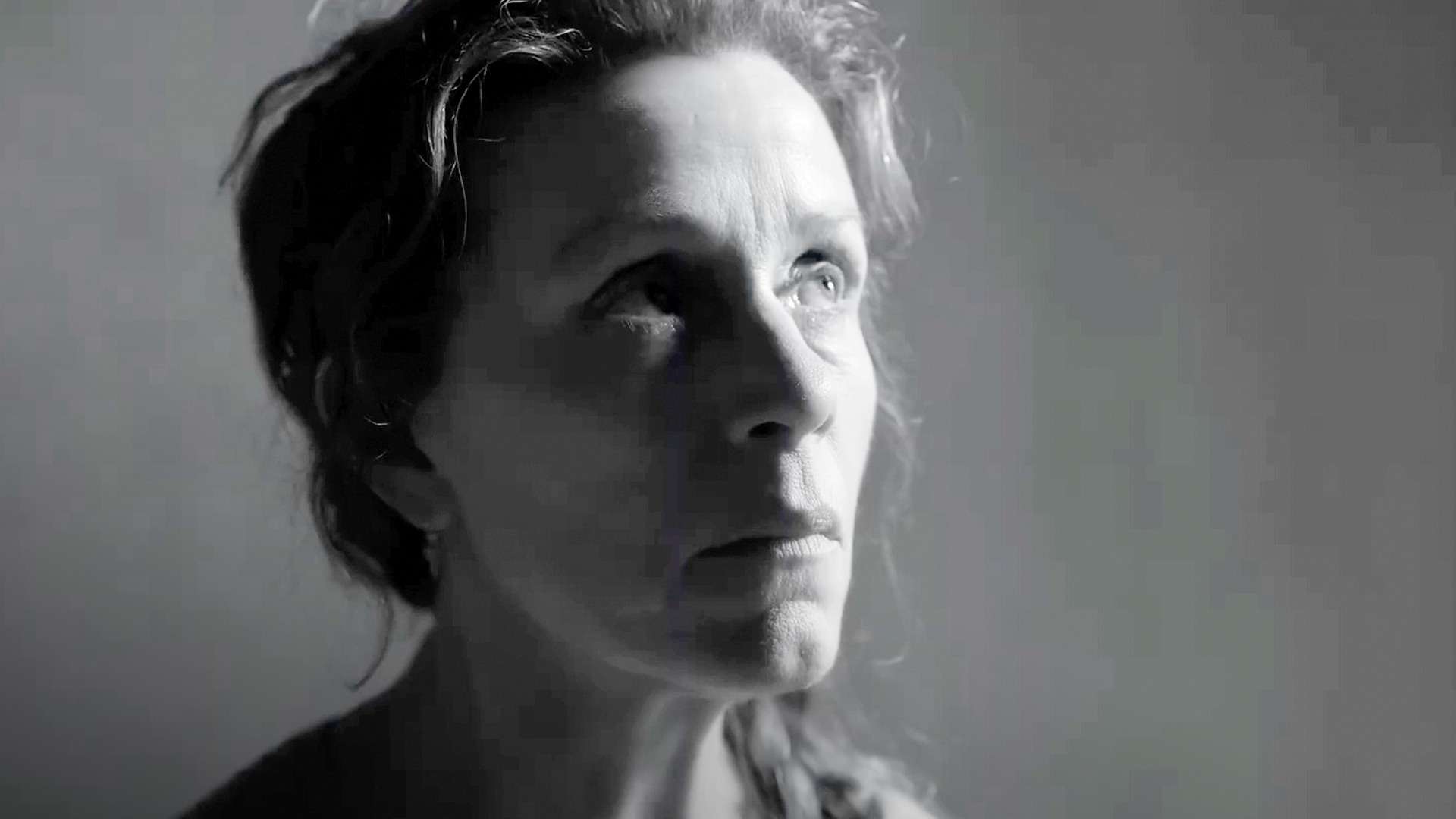
To date, the only feature made by McDormand’s husband, Joel Coen, without his brother Ethan, “The Tragedy of Macbeth,” allows some of the most accomplished names in American cinema to put Shakespeare on their resumé. McDormand played the role of the conniving Lady Macbeth on the stage with some success and translated the role brilliantly in this stark black-and-white adaptation. Opposite her is Denzel Washington in a quieter performance, subdued and worried in the face of his wife’s ambition but ultimately too shallow a man to refuse them. There’s a reason why Macbeth continues to engross audiences centuries later, and the gripping story and beautiful poetry are best appreciated from the mouths of our best living actors.
“The Tragedy of Macbeth” was greeted with a polite but muted reception on its release, perhaps because there was so little surprise in the whole affair. We all expected Denzel, McDormand, and Coen to make a tightly edited, beautifully shot, and wonderfully performed adaptation of the story, and that’s precisely what we got. But what the film lacked in Oscar wins, it makes up for in its top-tier filmmaking and some of the best acting imaginable. Great actors deliver great dialogue; sometimes, that’s all you need.
4. Nomadland (2020)
One movie that certainly wasn’t neglected by the Academy Awards was “Nomadland,” which swept the Covid-delayed Oscars, including a richly deserved third Best Actress win for McDormand. Her performance as Fern, one of the impoverished nomads who move across the United States looking for work in their mobile homes, is one of the most compelling of her career. There’s so much weathering in her face that, without the need for copious makeup and hairstyling, you do forget that a millionaire actress is in the lead part. Perhaps this is because director Chloe Zhao populated the rest of the film with non-actors and those who have genuinely experienced this tough lifestyle. This inspired artistic decision brings “Nomadland” from the realm of Oscar bait to a genuine engagement with the problems facing America.
McDormand also deserves credit for this approach, considering she was also one of the film’s producers, meaning she won another Oscar for Best Picture (that’s four in total for those keeping count). Without her full commitment, this movie would not have been as effective in its political messaging or storytelling. The empathy a viewer has for Fern at the film’s center provides a narrative focus and beating heart that makes the hardship she suffers more painful and the respites she receives all the more gratifying.
3. Hidden Agenda (1990)
This underrated gem transposes director Ken Loach’s lifelong attempts to chronicle the working-class British experience in Northern Ireland into a sizeably budgeted picture by his standards. Frances McDormand is almost certainly the most glamorous Hollywood star he’s worked with, yet as we have seen in this list time and time again, she is often bedfellows with the uncompromising and embittered voices of the film industry. The result is a drama that avoids condescension and is profoundly moving in its burning empathy and moral righteousness.
The film also signals Loach’s most direct flirtation with genre cinema; in many ways, “Hidden Agenda” could be labeled a straightforward political thriller. There’s a suspenseful plot, spunky protagonists seeking justice, and a state apparatus designed to keep them down. There are conspiratorial secrets to be uncovered in Northern Ireland during the Troubles (the period of civil unrest that lasted decades). Still, Loach is primarily concerned with the human consequences, pitting the individual versus the oppressive state. The phrase ‘human rights’ can seem so broad as to become nebulous and unattainable, but by grounding the struggle via McDormand’s character, an assistant to a prominent human rights lawyer, the brutal realities of the fight for equality, justice, and self-determination become crystal clear.
2. Almost Famous (2000)
This irresistibly charming modern classic boasts the best supporting role of McDormand’s career, a vital piece of the puzzle in making Cameron Crowe’s sprawling dramedy stick the landing. For the uninitiated, “Almost Famous” follows a teenage employee of Rolling Stone magazine who tails a famous dysfunctional rock band on tour and comes of age in the process. Crowe’s own experience inspires the film, but it can be easy to get lost in the rockstar fantasy land of it all – not just the sex, drugs, and rock and roll but the classic tales of crushed dreams and runaway groupies.
Once again, McDormand’s most incredible skill as a performer is to use her earthy, homespun charm and grit to give the story a heart and a profound sense of realism. She plays Elaine Miller, the mother of the film’s protagonist, William. She’s a tyrannical single mother whose desire to protect her children extends to the blanket ban of rock music in the house. This tragically drives away her daughter Anita and creates an adversarial, distrustful relationship with William. Nevertheless, you empathize with her financial and social difficulties, and by the time the family drama resolves itself, you’re engaged and willing to let your heart open up to this crowd-pleasing and proudly cornball mini-masterpiece.
1. Fargo (1996)
What more can be said about “Fargo” at this point? Over a quarter-century after its release, it endures as the Coen brothers’ masterpiece, the most distinctive and streamlined example of their knack for combining comedy and violence to express the darkness of humor and the absurdity of death. McDormand won her first Oscar for her legendary performance as Marge Gunderson, the intensely likable police officer who draws upon her folksy wisdom to uncover a conspiracy by Jerry Lundegaard (William H. Macy) to have his own wife kidnapped.
So iconic is McDormand’s performance in the tapestry of this movie that you can forget she doesn’t appear until well after the half-hour mark. The Coens establish the morally bankrupt world of buffoons involved in the crime before introducing Gunderson as the sage counterpoint to their stupidity. Despite her affable demeanor, she’s stern with a pinpoint moral compass in that classic McDormand manner, especially when to H. Macy’s middle-management social-climbing cowardice and the amoral hedonism of Carl (Steve Buscemi).
One of the wisest decisions the Coens make here is to give the film a relatively happy ending, a victory for McDormand, and a final scene of domestic bliss between her and her charmingly dedicated husband. There’s even a message driven home when McDormand tells the criminal that “there’s more to life than a little money.” In a filmography of challenging roles in hard-hitting films and ink-black comedies, McDormand’s defining role speaks to how her embodiment of the perseverant human spirit lights up the screen.

